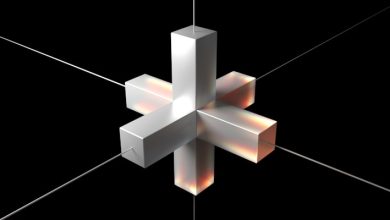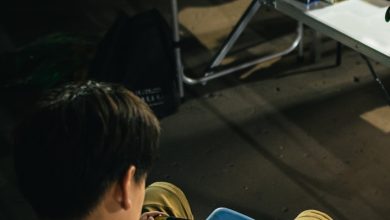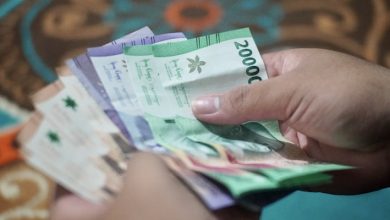What is a DAO? How Decentralized Autonomous Organizations Work

- Understanding the concept of DAO
- The role of smart contracts in DAOs
- Advantages of decentralized decision-making in organizations
- Challenges and limitations of DAOs
- Examples of successful DAO projects
- The future of decentralized autonomous organizations
Understanding the concept of DAO
Decentralized Autonomous Organizations, commonly referred to as DAOs, are a new and innovative way of organizing and operating without the need for central control. DAOs are essentially self-governing entities that run on blockchain technology, making them transparent, secure, and efficient.
DAOs operate through smart contracts, which are self-executing contracts with the terms of the agreement directly written into code. This eliminates the need for intermediaries or middlemen, as the rules and regulations are enforced automatically by the blockchain.
One of the key features of DAOs is their decentralized nature, meaning that decision-making processes are distributed among all members of the organization. This ensures that no single entity has control over the entire operation, promoting transparency and fairness.
Members of a DAO typically hold tokens that represent their stake in the organization. These tokens give them voting rights on various proposals or decisions within the DAO. The more tokens a member holds, the greater their influence on the organization.
DAOs can be used for a wide range of purposes, from managing funds and investments to governing online communities and decentralized applications. They offer a new way of organizing that is secure, transparent, and resistant to censorship or manipulation.
The role of smart contracts in DAOs
Smart contracts play a crucial role in the operation of Decentralized Autonomous Organizations (DAOs). These contracts are self-executing agreements with the terms of the agreement directly written into code. They run on the blockchain, ensuring transparency and security in the execution of transactions within a DAO.
Smart contracts eliminate the need for intermediaries or third parties in the decision-making process of a DAO. They automate the enforcement of rules and facilitate the exchange of value among participants. This automation reduces the potential for human error or manipulation, making the operations of a DAO more efficient and trustworthy.
By using smart contracts, DAOs can establish a set of predefined rules and protocols that govern their operation. These contracts facilitate voting mechanisms, fund allocation, and other governance processes within the organization. Participants can trust that these rules will be followed consistently, as they are coded into the blockchain and cannot be altered without the consensus of the majority.
In addition, smart contracts enable DAOs to execute complex transactions securely and quickly. They provide a level of programmability that allows for the creation of innovative applications and services within the organization. This flexibility opens up new possibilities for decentralized collaboration and value creation among DAO members.
Overall, smart contracts are essential building blocks for the functioning of DAOs. They ensure transparency, security, and efficiency in the operation of decentralized organizations, empowering participants to collaborate and transact with confidence.
Advantages of decentralized decision-making in organizations
One of the key advantages of decentralized decision-making in organizations is increased efficiency. By distributing decision-making power among various members of the organization, tasks can be completed more quickly and effectively. This is because decentralized organizations empower individuals to make decisions in their areas of expertise without having to seek approval from higher-ups, leading to faster problem-solving and implementation of solutions.
Another benefit of decentralized decision-making is improved innovation. When employees are given the autonomy to make decisions, they are more likely to think creatively and come up with innovative solutions to challenges. This can lead to a more dynamic and forward-thinking organization that is better equipped to adapt to changes in the market and stay ahead of the competition.
Decentralized decision-making also fosters a sense of ownership and accountability among employees. When individuals are given the freedom to make decisions, they are more likely to take responsibility for the outcomes of those decisions. This can lead to a more engaged and motivated workforce that is invested in the success of the organization as a whole.
Furthermore, decentralized organizations are often more resilient in the face of crises. By distributing decision-making power, these organizations are better able to adapt to unexpected challenges and changes in the environment. This flexibility and agility can help decentralized organizations weather storms and emerge stronger on the other side.
Overall, decentralized decision-making in organizations can lead to increased efficiency, innovation, employee engagement, and resilience. By empowering individuals to make decisions autonomously, organizations can create a more dynamic and adaptive work environment that is better equipped to thrive in an ever-changing world.
Challenges and limitations of DAOs
Despite their numerous advantages, Decentralized Autonomous Organizations (DAOs) also face several challenges and limitations. One of the main concerns is the lack of legal recognition and regulatory frameworks surrounding DAOs. This ambiguity can lead to uncertainties regarding accountability, liability, and dispute resolution within the organization.
Additionally, DAOs are vulnerable to security risks and cyber attacks due to their decentralized nature. Smart contract vulnerabilities, hacking attempts, and malicious actors pose significant threats to the smooth operation of DAOs. Ensuring robust security measures and protocols is crucial to safeguarding the assets and integrity of the organization.
Another challenge faced by DAOs is governance and decision-making processes. The decentralized structure of DAOs can make it challenging to reach a consensus on important matters, leading to potential conflicts and inefficiencies. Developing effective mechanisms for voting, governance, and conflict resolution is essential for the successful functioning of DAOs.
Furthermore, scalability is a significant limitation for DAOs, particularly in terms of processing power and transaction speed. As the number of participants and transactions within a DAO grows, scalability issues can arise, affecting the overall performance and efficiency of the organization. Finding solutions to enhance scalability while maintaining decentralization is a key area of focus for DAO developers.
Examples of successful DAO projects
Some successful examples of DAO projects include “The DAO,” a crowdfunding project that raised over $150 million in Ethereum before being hacked. Another example is “MolochDAO,” which focuses on funding Ethereum development projects through community governance. “MakerDAO” is a decentralized lending platform that allows users to generate DAI stablecoin loans by locking up collateral in the form of Ether. “Aragon” is a DAO platform that enables organizations to create and manage decentralized autonomous entities. “dxDAO” is a decentralized autonomous organization focused on decentralized finance initiatives. These projects demonstrate the potential of DAOs to revolutionize governance, funding, and decision-making processes in various industries. By leveraging blockchain technology and smart contracts, DAOs offer a new paradigm for organizational structures that prioritize transparency, autonomy, and decentralization.
The future of decentralized autonomous organizations
The future of decentralized autonomous organizations (DAOs) is promising as more industries and communities realize the benefits of this innovative organizational structure. DAOs leverage blockchain technology to create transparent, efficient, and democratic decision-making processes without the need for centralized control. This allows for greater trust among participants and eliminates the potential for corruption or manipulation.
In the coming years, we can expect to see DAOs play a more significant role in various sectors, including finance, governance, supply chain management, and more. As the technology matures and becomes more accessible, we may see a rise in the number of DAOs being formed to address specific needs or challenges within different communities.
One of the key advantages of DAOs is their ability to operate autonomously through smart contracts, which are self-executing agreements with the terms of the contract directly written into code. This eliminates the need for intermediaries and streamlines decision-making processes, making DAOs more efficient and cost-effective.
While DAOs are still in the early stages of development, they have the potential to revolutionize how organizations are structured and governed. By embracing decentralized principles and leveraging blockchain technology, DAOs offer a glimpse into a future where power is distributed more evenly, and decision-making is truly democratic. As the technology continues to evolve, DAOs are poised to become a cornerstone of the decentralized economy, driving innovation and empowering communities worldwide.



